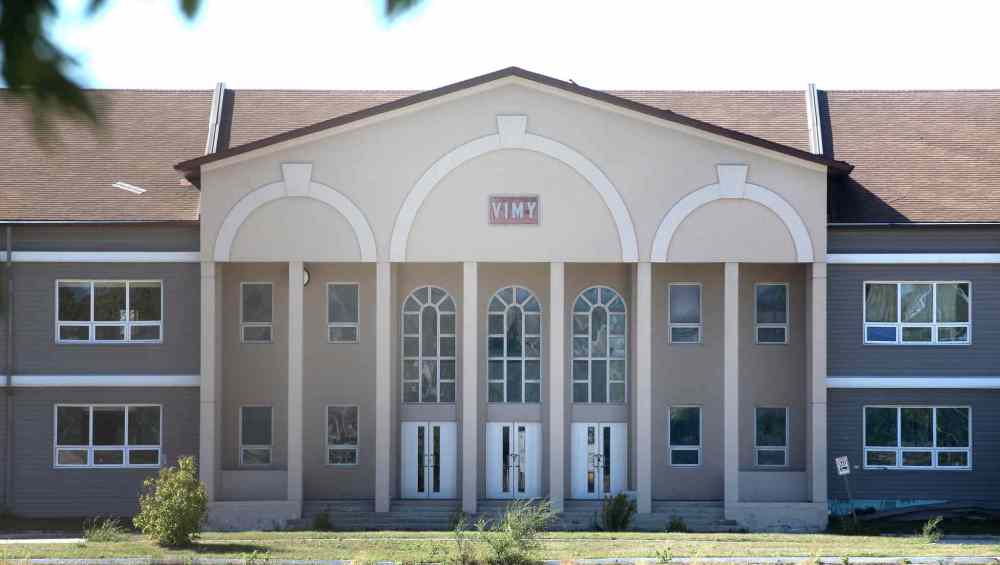Ottawa must make good on promises with Kapyong
Advertisement
Read this article for free:
or
Already have an account? Log in here »
To continue reading, please subscribe:
Monthly Digital Subscription
$0 for the first 4 weeks*
- Enjoy unlimited reading on winnipegfreepress.com
- Read the E-Edition, our digital replica newspaper
- Access News Break, our award-winning app
- Play interactive puzzles
*No charge for 4 weeks then price increases to the regular rate of $19.00 plus GST every four weeks. Offer available to new and qualified returning subscribers only. Cancel any time.
Monthly Digital Subscription
$4.75/week*
- Enjoy unlimited reading on winnipegfreepress.com
- Read the E-Edition, our digital replica newspaper
- Access News Break, our award-winning app
- Play interactive puzzles
*Billed as $19 plus GST every four weeks. Cancel any time.
To continue reading, please subscribe:
Add Free Press access to your Brandon Sun subscription for only an additional
$1 for the first 4 weeks*
*Your next subscription payment will increase by $1.00 and you will be charged $16.99 plus GST for four weeks. After four weeks, your payment will increase to $23.99 plus GST every four weeks.
Read unlimited articles for free today:
or
Already have an account? Log in here »
Hey there, time traveller!
This article was published 17/08/2015 (3772 days ago), so information in it may no longer be current.
The federal government has been given a clear signal from the courts, yet again, that it has an obligation to discuss selling the old Kapyong Barracks to four First Nations interested in the land vacated more than a decade ago by the Princess Patricia’s Canadian Light Infantry. It’s time to get started.
A Federal Court of Appeal has reiterated a lower court’s decision that the government did not fulfill its duty to negotiate as a willing seller with the bands, to inform them of its plans to sell what is some of the most coveted real estate in Winnipeg. In fact, there were long periods of complete silence from Ottawa, which knew some bands may, or did, have interest in the land.
While at times some of the bands “were not responsive to invitations by Canada” for talks, overall, the government did not meet its obligation to seriously consult, according to federal appeal court Justice David Stratas.

It was the bands who, learning of the army’s intended move in April 2001 through the media, first inquired about the barracks. It was the bands who continued to seek details of the government’s plans, to no avail. The government, late in 2001, decided to declare the lands “strategic” and to sell it to the federal agency that handles the marketing of this kind of surplus property.
In Ottawa’s mind, that dropped the 160 acres into a special category. It argued it did not need to give First Nations special considerations before selling strategic lands.
Not so, says the Appeal Court, confirming the ruling of a lesser court. Treaty land-entitlement agreements confer upon the bands a special status as potential buyers — the agreements require Ottawa to uphold the honour of the Crown to fulfill treaties signed long ago.
Ottawa must go the extra mile to ensure bands get what they are owed. The TLE agreements, first signed in the 1990s, aim to make good on promises of land made to bands when they were moved onto reserves before or at the turn of the century. Bands were either transferred available Crown land or given money to buy private land or when government land becomes surplus.
Justice Stratas said while moving surplus land to “strategic” designation can alter the conditions under which the bands might buy, Ottawa must meaningfully consult them before that designation is made.
Ottawa didn’t do that, he wrote.
It is odd agreements intended to make good on old, long-standing promises to First Nations people would allow Ottawa to make a distinction as to what kind of surplus land it’s prepared to offer.
The agreements don’t require Canada to sell to First Nations, but it must act as a willing seller. And, as the court noted, the treaty entitlement agreements are more than simple commercial contracts.
Any land within urban settlements sold to First Nations, perhaps for transfer to reserve status, should conform to appropriate zoning — building a hog barn or a refinery in a neighbourhood would be unfair and unacceptable to residents nearby. A lawyer for one of the bands says he told the Federal Court the bands are willing to work with the city and the nearby residents of Tuxedo and River Heights on zoning.
Justice Stratas found no animosity in the government’s conduct nor did he find it egregious as had the lower court judge. Winnipeggers who have watched the dispute unfold over the decade or more can come to their own conclusions.
The vacant land at the corner of Route 90 and Grant Avenue is an eyesore. The city and the First Nations have lost 14 years worth of progress toward making it work, economically and socially, for Winnipeggers and the bands.
The federal government should not appeal this decision.
It should start talking to the bands about the price and conditions under which it would sell the barracks.


